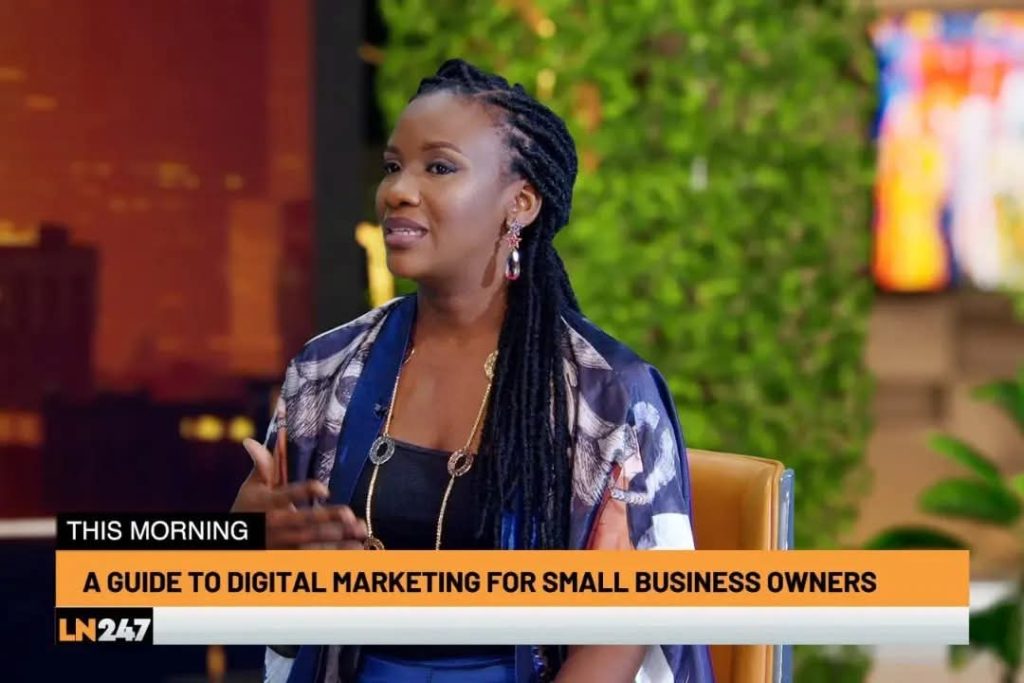Learn how to channel your founder’s energy to build a lasting legacy while increasing personal and brand visibility. Featuring examples from Mo Abudu, Tony Elumelu, Strive Masiyiwa, and other industry leaders.
Introduction: What Is Founder Energy and Why Does It Matter?
Every thriving brand begins with one thing: founder energy—the unique drive, vision, and personality that fuel a business’s growth. But while passion can ignite a brand, building a business that outlives you requires more than hustle; it takes strategic positioning, visibility, and a legacy-driven mindset.
Think of Mo Abudu, whose influence in African media has reshaped global perceptions of African storytelling, or Strive Masiyiwa, whose leadership extends beyond telecommunications into global philanthropy. Their personal energy doesn’t just grow their businesses—it transforms industries.
If you’re a founder, the question is simple: How do you grow visibility today while laying the foundation for a legacy that lasts decades?
Here’s how successful founders are doing it—and how you can too.
1. Lead With Purpose—Your Legacy Begins With a Clear Vision
A true legacy starts with a clear sense of purpose. What impact will your business have in 10, 20, or 50 years? What do you want to be remembered for as a founder?
Example: Aliko Dangote
Dangote’s vision was never just to be Africa’s richest man—it was to make Africa self-sufficient in essential goods. His long-term strategy in cement, sugar, and now oil has made Dangote Industries synonymous with African industrialization.
✅ Action Tip: Write down your 10-year impact goals. Share them publicly—people rally around a founder with a clear mission.
2. Build a Personal Brand That Mirrors Your Company Values
Your personal brand is as important as your company’s. The strongest founders are the most visible advocates for their mission. When people trust you, they trust your business.
Example: Mo Abudu
Mo Abudu doesn’t just run EbonyLife Media; she embodies it. Her public image—elegant, ambitious, and unapologetically African—reflects EbonyLife’s mission to tell authentic African stories. Her personal visibility has opened doors for Netflix and Sony partnerships.
✅ Example: Tara Fela-Durotoye
Through House of Tara, Tara built not just a makeup brand but a movement. Her personal story of empowering African women entrepreneurs mirrors her brand values, making her a role model across the continent.
✅ Action Tip:
- Post regularly on LinkedIn or Instagram about lessons from running your business.
- Share wins, but also share challenges—authenticity builds trust and relatability.
3. Leverage Visibility Platforms—Social Media, PR, and Speaking Engagements
Being great at what you do is not enough—people need to see it. Visibility grows trust and opens doors for partnerships.
Example: Elon Musk
Elon Musk’s tweets influence Tesla’s stock price. His strategic use of social media and public speaking makes him a global thought leader in tech innovation.
Example: Tony Elumelu
Through the Tony Elumelu Foundation, Tony has positioned himself as a leading voice in African entrepreneurship. His annual TEF Forum garners global attention, boosting visibility for his businesses.
✅ Example: Jason Njoku (IROKOtv)
Jason frequently shares his startup journey, wins, and failures on social media. His honesty attracts investors and keeps his brand top of mind.
✅ Action Tip:
- Submit articles to business platforms or blogs.
- Speak at webinars, conferences, and panels to position yourself as an authority.
- Invest in PR that highlights your impact, not just your products.
4. Empower Others—Turn Your Energy Into Systems
Founder energy should inspire, not overwhelm. If your business depends entirely on you, you’re not building a legacy; you’re building a job for yourself.
Example: Strive Masiyiwa
Strive scaled Econet into a multinational by building systems and delegating. Today, while he focuses on philanthropy and global health initiatives, Econet continues to thrive.
Example: Sara Blakely (Spanx)
Sara transformed Spanx into a billion-dollar brand by hiring leaders who shared her vision, allowing her to focus on strategic partnerships and social impact.
✅ Action Tip:
- Create training manuals or mentorship programs for your team.
- Identify and groom future leaders early—your legacy is the people you empower.
5. Measure Impact, Not Just Popularity
Visibility is great, but legacy is measured by impact. It’s not just about followers or press mentions; it’s about the lives, industries, and communities transformed by your work.
Example: Tony Elumelu
While his name trends on social media, Tony measures his legacy by the startups funded and jobs created through his foundation—over 15,000 African entrepreneurs empowered.
Example: Yvonne Orji (Actress & Entrepreneur)
Beyond her acting career, Yvonne invests in authentic African storytelling in Hollywood. Her legacy will be measured by the African talents she inspires and uplifts.
✅ Action Tip:
- Track your legacy metrics—jobs created, lives impacted, or industries transformed.
- Share these results publicly to inspire trust and attract collaborators.
Conclusion: Founder Energy Is Your Superpower
Your founder energy is the spark that fuels your business, but legacy comes from intentional action.
By combining:
✅ A clear, purpose-driven vision
✅ A personal brand aligned with your company values
✅ Strategic visibility
✅ Empowered leadership teams
✅ And measurable impact
…you can build a brand that outlives you and a personal reputation that influences generations.
The best time to start was yesterday; the second-best time is now.

